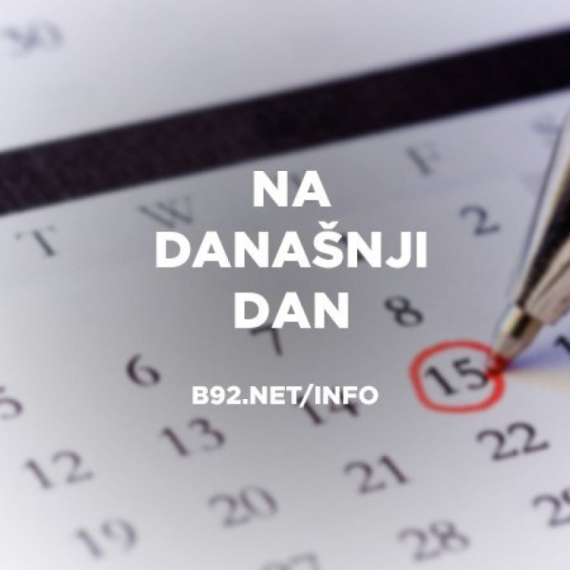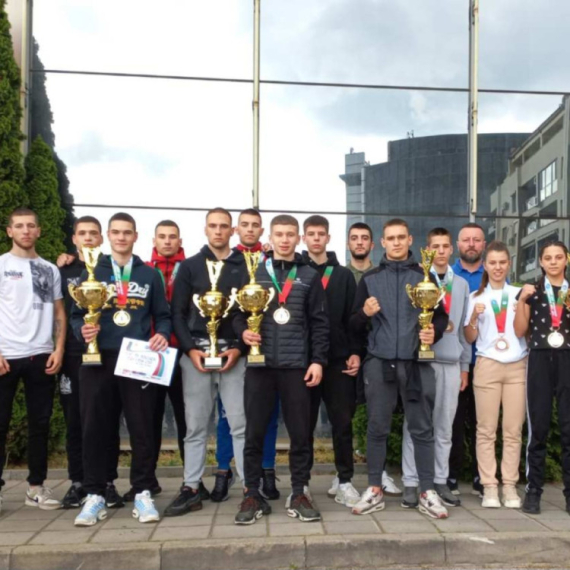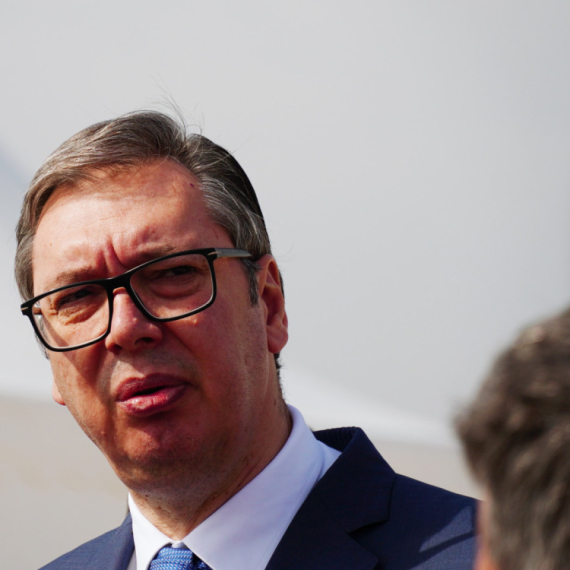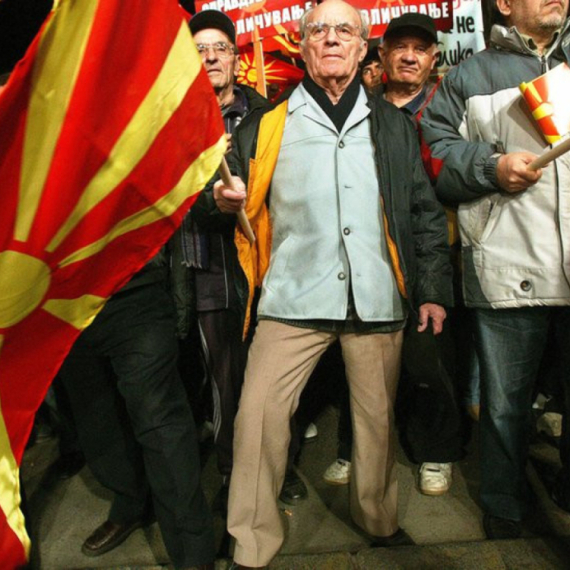Deputy PM calls on EU to be “fair to Serbia”
Serbia's Deputy Prime Minister Božidar Đelić said on Thursday in Brussels that Serbia's goal was to start accession talks with the EU in the spring of 2012.
Thursday, 16.06.2011.
16:54

Serbia's Deputy Prime Minister Bozidar Djelic said on Thursday in Brussels that Serbia's goal was to start accession talks with the EU in the spring of 2012. He urged the EU to be firm but just, and not to invent new obstacles to block Serbia's European future. Deputy PM calls on EU to be “fair to Serbia” The Serbian deputy prime minister told “those who have said so many times in the last several years that they will be firm but just when Serbia is concerned. to continue being firm but not unjust”. European Parliament (EP) MPs have welcomed Hague indictee Ratko Mladic's arrest and assessed that it is a “big step“ in Serbia's EU accession. Some MPs, however, wanted to know how Belgrade was going to solve issues with Kosovo. Djelic pointed out that Serbian authorities saw the Belgrade-Pristina dialogue as a “process that will lead to reconciliation through a historic compromise between Serbs and Albanians“, adding that Serbia would not recognized Kosovo's unilaterally declared independence but that it did not want Kosovo to “remain a frozen conflict“ either. “We want a mutually acceptable solution and we know that it has to be found before we become the Union member,“ he explained and added that “Pristina would need the compromise even more, which would also be in the EU's interest“. “We are ready to talk about everything, to be flexible, predictable partner,“ the Serbian deputy PM said and stressed that Serbia would never cross the “red line“ and recognize Kosovo's independence because it would mean that “you are making us violate our own Constitution“. He informed the EP MPs about judicial reform, combat against corruption and organized crime and the law on restitution. Djelic stated that the Serbian government would do its best to improve economic and social situation in the country. Bozidar Djelic “SAA should be ratified as soon as possible” Djelic pointed out that 18 national parliaments had already ratified Serbia's Stabilization and Association Agreement (SAA) but that several were still hesitant. The Serbian deputy prime minister expressed hope that the European Commission (EC) would give a positive opinion on Serbia's candidacy on October 12 and recommend the start of accession talks, reminding that Serbia had worked hard to answer all questions in the EC questionnaire and received six technical missions, whose recommendations it was already starting to implement. He also said Serbia was determined to preserve its visa-free travel regime with the EU and reduce the number of illegal immigrants and asylum seekers. Djelic said that according to EU statistical office Eurostat, Serbian citizens entered the Schengen area about six million times in 2010 but only about 17,700 Serbian citizens sought asylum in EU member states. He also stressed that 98 percent of all applications had been rejected and that the number of asylum seekers had been reduced by 40 percent between December 2010 and April 2011. “Organ trade investigation should be under UN mandate” Djelic welcomed EULEX's involvement in an investigation into human organ trade allegations, but reminded that to date, all war crimes in the former Yugoslavia had been investigated by institutions with a UN Security Council mandate and this case should be no different. The deputy PM said that such international investigation needed to have jurisdiction outside Kosovo as well and underscored that the investigation would also have to be conducted in Turkey, Israel, Morocco and Albania.
Deputy PM calls on EU to be “fair to Serbia”
The Serbian deputy prime minister told “those who have said so many times in the last several years that they will be firm but just when Serbia is concerned. to continue being firm but not unjust”.European Parliament (EP) MPs have welcomed Hague indictee Ratko Mladić's arrest and assessed that it is a “big step“ in Serbia's EU accession. Some MPs, however, wanted to know how Belgrade was going to solve issues with Kosovo.
Đelić pointed out that Serbian authorities saw the Belgrade-Priština dialogue as a “process that will lead to reconciliation through a historic compromise between Serbs and Albanians“, adding that Serbia would not recognized Kosovo's unilaterally declared independence but that it did not want Kosovo to “remain a frozen conflict“ either.
“We want a mutually acceptable solution and we know that it has to be found before we become the Union member,“ he explained and added that “Priština would need the compromise even more, which would also be in the EU's interest“.
“We are ready to talk about everything, to be flexible, predictable partner,“ the Serbian deputy PM said and stressed that Serbia would never cross the “red line“ and recognize Kosovo's independence because it would mean that “you are making us violate our own Constitution“.
He informed the EP MPs about judicial reform, combat against corruption and organized crime and the law on restitution.
Đelić stated that the Serbian government would do its best to improve economic and social situation in the country.
“SAA should be ratified as soon as possible”
Đelić pointed out that 18 national parliaments had already ratified Serbia's Stabilization and Association Agreement (SAA) but that several were still hesitant.The Serbian deputy prime minister expressed hope that the European Commission (EC) would give a positive opinion on Serbia's candidacy on October 12 and recommend the start of accession talks, reminding that Serbia had worked hard to answer all questions in the EC questionnaire and received six technical missions, whose recommendations it was already starting to implement.
He also said Serbia was determined to preserve its visa-free travel regime with the EU and reduce the number of illegal immigrants and asylum seekers.
Đelić said that according to EU statistical office Eurostat, Serbian citizens entered the Schengen area about six million times in 2010 but only about 17,700 Serbian citizens sought asylum in EU member states. He also stressed that 98 percent of all applications had been rejected and that the number of asylum seekers had been reduced by 40 percent between December 2010 and April 2011.
“Organ trade investigation should be under UN mandate”
Đelić welcomed EULEX's involvement in an investigation into human organ trade allegations, but reminded that to date, all war crimes in the former Yugoslavia had been investigated by institutions with a UN Security Council mandate and this case should be no different.The deputy PM said that such international investigation needed to have jurisdiction outside Kosovo as well and underscored that the investigation would also have to be conducted in Turkey, Israel, Morocco and Albania.































Komentari 7
Pogledaj komentare